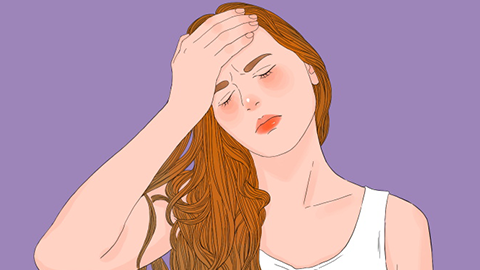What Are the 4 Symptoms of Female Aging?
There is no such concept as "four symptoms of female aging." Symptoms of aging in women include deteriorating skin condition, irregular menstrual cycles, discomfort in bones and joints, decreased metabolic capacity, and declining nervous system function. These are manifestations of natural physiological decline, and some symptoms may be related to underlying diseases. If signs of abnormally accelerated aging or severe discomfort occur, prompt medical consultation is recommended.
1. Deteriorating skin condition: Loss of collagen leads to skin laxity, fine lines and wrinkles, reduced elasticity, and diminished radiance. Pigmentation may result in age spots, while decreased skin hydration causes dryness and weakened resistance to external irritants.
2. Irregular menstrual cycles: Declining ovarian function causes fluctuations in estrogen levels, leading to irregular menstrual cycles, changes in menstrual flow (increased or decreased), and variations in period duration. This may eventually progress to menopause with cessation of menstruation, possibly accompanied by hot flashes and night sweats.

3. Discomfort in bones and joints: Reduced estrogen levels impair calcium absorption, lowering bone density and increasing the risk of osteoporosis. Cartilage wear in joints may worsen, causing joint pain, stiffness, reduced flexibility during movement, and a higher risk of fractures.
4. Decreased metabolic capacity: A lower basal metabolic rate reduces energy expenditure, making weight gain—especially abdominal fat accumulation—more likely. Weakened digestive function may lead to bloating and appetite changes, while the body's recovery ability slows compared to younger years.
5. Declining nervous system function: This may manifest as memory decline, difficulty concentrating, and poor sleep quality—including trouble falling asleep and frequent waking. Emotional regulation may weaken, increasing susceptibility to anxiety, irritability, or low mood.
Maintaining regular sleep patterns and avoiding late nights, eating a balanced diet rich in high-quality protein and vitamins, engaging in moderate exercise such as yoga or brisk walking, properly moisturizing and protecting skin from sun exposure, and maintaining a positive mental state can all help slow the aging process.




